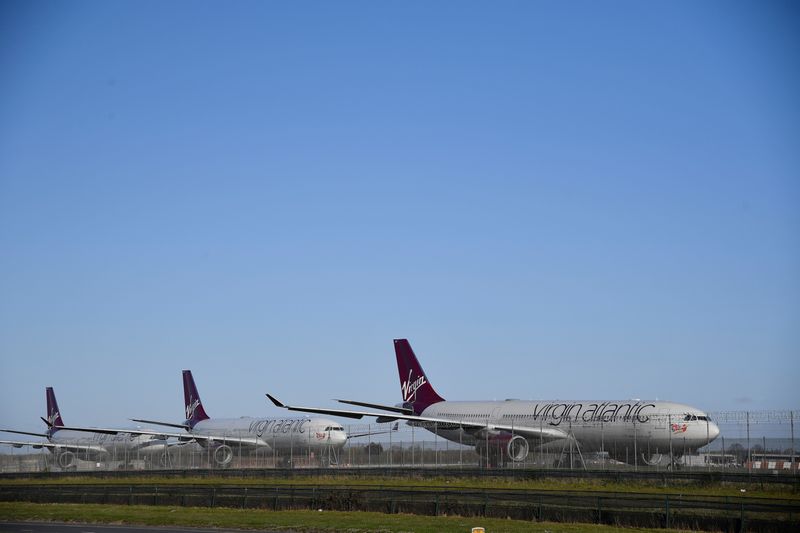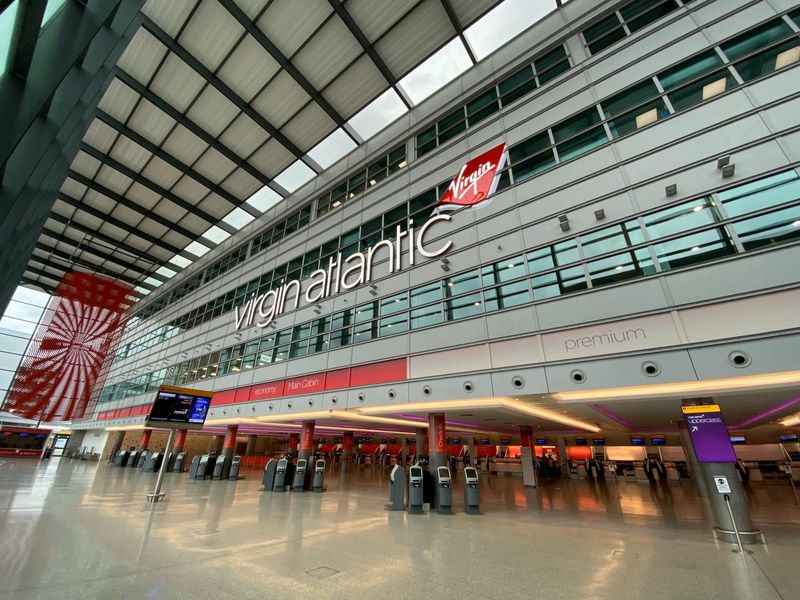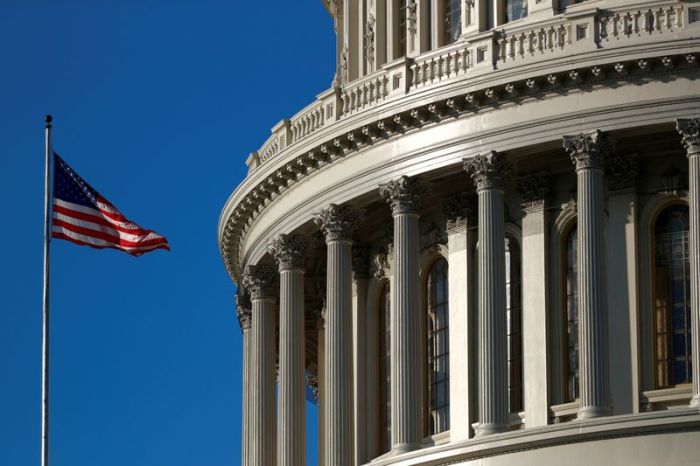LONDON (Reuters) – British airline Virgin Atlantic plans to cut 3,150 jobs and move its London Gatwick operations to the bigger Heathrow airport, it said on Tuesday, as it counts the cost of the COVID-19 pandemic.
The spread of the novel coronavirus has virtually brought airports around the globe to a standstill, leaving airlines taking drastic steps to make savings.
The redundancy plans at Virgin Atlantic, which follow a similar announcement from British Airways last week, intensified calls from unions and opposition politicians for support from the government for the aviation sector.
“We have weathered many storms since our first flight 36 years ago, but none has been as devastating as Covid-19 … now is the time for further action to reduce our costs, preserve cash and to protect as many jobs as possible,” Virgin Atlantic Chief Executive Shai Weiss said in a statement.
“It is crucial that we return to profitability in 2021. This will mean taking steps to reshape and resize Virgin Atlantic in line with demand.”
Virgin Atlantic’s announcement also heightened concerns about the future of London’s second biggest airport, Gatwick.
The airline said it would move its flying programme at Gatwick to the city’s bigger Heathrow airport, but intended to keep its slots at Gatwick to allow it to return if customer demand rebounded.
British Airways has also suspended operations at Gatwick and has told pilots there is no certainty over when those services might return.
Norwegian Air <NWC.OL>, which flies transatlantic routes from Gatwick, is preparing to relaunch in a scaled-down version when the coronavirus crisis subsides after reaching a rescue deal with shareholders.
“We have grave concerns about the impact on Gatwick airport and the local economy following this latest blow,” said Diana Holland, assistant general secretary of the Unite trade union.
Gatwick said Virgin Atlantic’s plans were sad but it had been encouraged by recent developments at Norwegian.
“We remain confident that the industry will recover as air travel demand returns. We remain very optimistic about the long-term prospects of Gatwick Airport and our resilience as a business,” the airport said in a statement.
ALL AVAILABLE OPTIONS
British Airways said last week it could cut as many as 12,000 jobs, over a quarter of its total, as a result of the impact of the coronavirus, with many countries advising against or restricting travel in a bid to halt its spread.
Those restrictions have resulted in a collapse in airline traffic. On Tuesday, Ireland’s Ryanair <RYA.I> posted a 99.6% plunge in passenger numbers in April, while smaller low-cost carrier Wizz Air <WIZZ.L> said numbers dropped 97.6%.
Virgin Atlantic said it continued to explore all available options to get extra funding through talks with the government and other stakeholders.
Unite, the British Airline Pilots Association (BALPA) and the opposition Labour party all reiterated calls for government support for the aviation sector.
“The Government is failing workers by not stepping in and protecting these jobs,” Labour transport spokesman Jim McMahon said.
The government says it is providing support through tax breaks, furloughing salary schemes and offering loans, and Unite said Virgin’s consultations on redundancies were premature as the firm was not using the government’s job retention programme.
Virgin Atlantic is based in Britain and is 51% owned by Richard Branson’s Virgin group and 49% owned by U.S. airline Delta <DAL.N>.
It also said it would no longer use all its seven Boeing <BA.N> 747-400s, and that four Airbus <AIR.PA> A330-200s would be retired in early 2022 as planned.
(Additional reporting by Kate Holton in London and Laurence Frost in Paris; Editing by Stephen Addison and Mark Potter)

























